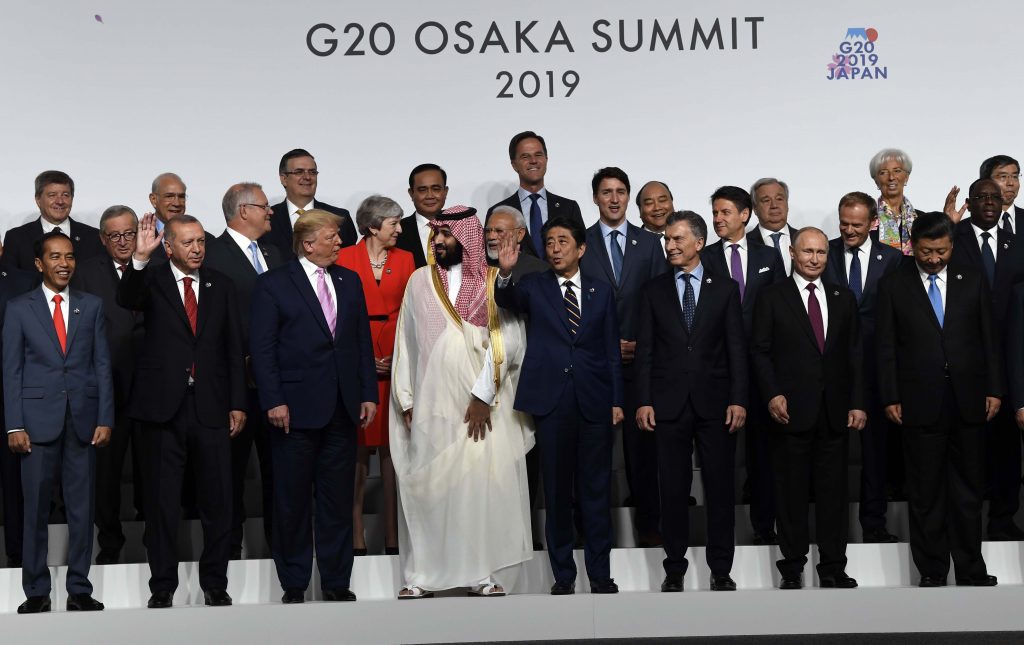Osaka: World leaders attending a Group of 20 (G-20) summit in Japan are clashing over the values that have served for decades as the foundation of their cooperation.
European Union President Donald Tusk blasted Russian President Vladimir Putin for suggesting in an interview with the newspaper Financial Times that liberalism was ‘obsolete’.
In a statement Friday to reporters, Tusk said, “We are here as Europeans also to firmly and unequivocally defend and promote liberal democracy.” Tusk added, “What I find really obsolete are: authoritarianism, personality cults, the rule of oligarchs even if sometimes they may seem effective.”
As US President Donald Trump, Chinese President Xi Jinping, Putin and other leaders met on the sidelines of the summit, Tusk told reporters that such comments suggest a belief that ‘freedoms are obsolete, that the rule of law is obsolete and that human rights are obsolete’.
Putin told the Financial Times that ‘the liberal idea has become obsolete. It has come into conflict with the interests of the overwhelming majority of the population’.
Putin also praised Trump for his efforts to try to stop the flow of migrants and drugs from Mexico and said that liberalism ‘presupposes that nothing needs to be done, that migrants can kill, plunder and rape with impunity because their rights as migrants have to be protected’.
The G-20 leaders are meeting at a time of profound tensions over trade, globalisation and Iran’s collapsing nuclear deal. While prospects for detente in the trade war between the US and China are in the spotlight, many participating are calling for a broader perspective in tackling global crises.
Trump’s meeting with the Chinese president scheduled for Saturday as the G-20 meetings conclude has raised hopes for a detente in the tariffs war between the world’s two largest economies. US Trade Representative Robert Lighthizer and Commerce Secretary Wilbur Ross accompanied Trump to Osaka.
However, a Chinese foreign ministry spokesman in Beijing said China intends to defend itself against further US moves to penalise it over trade friction. China often has sought to gain support for defending global trade agreements against Trump’s ‘America First’ stance in gatherings like the G-20.
Threats by Trump to impose more tariffs on Chinese exports ‘won’t work on us because the Chinese people don’t believe in heresy and are not afraid of pressure,” Geng Shuang said.
Trump has at times found himself at odds with other leaders in such international events, particularly on issues such as Iran, climate change and trade.
On the rising tensions between Iran and the United States, UN Secretary-General Antonio Guterres said the world can’t afford the conflict and it was ‘essential to deescalate the situation’ and avoid confrontation. Iran is soon poised to surpass a key uranium stockpile threshold, threatening the nuclear accord it reached with world powers in 2015.
AP


